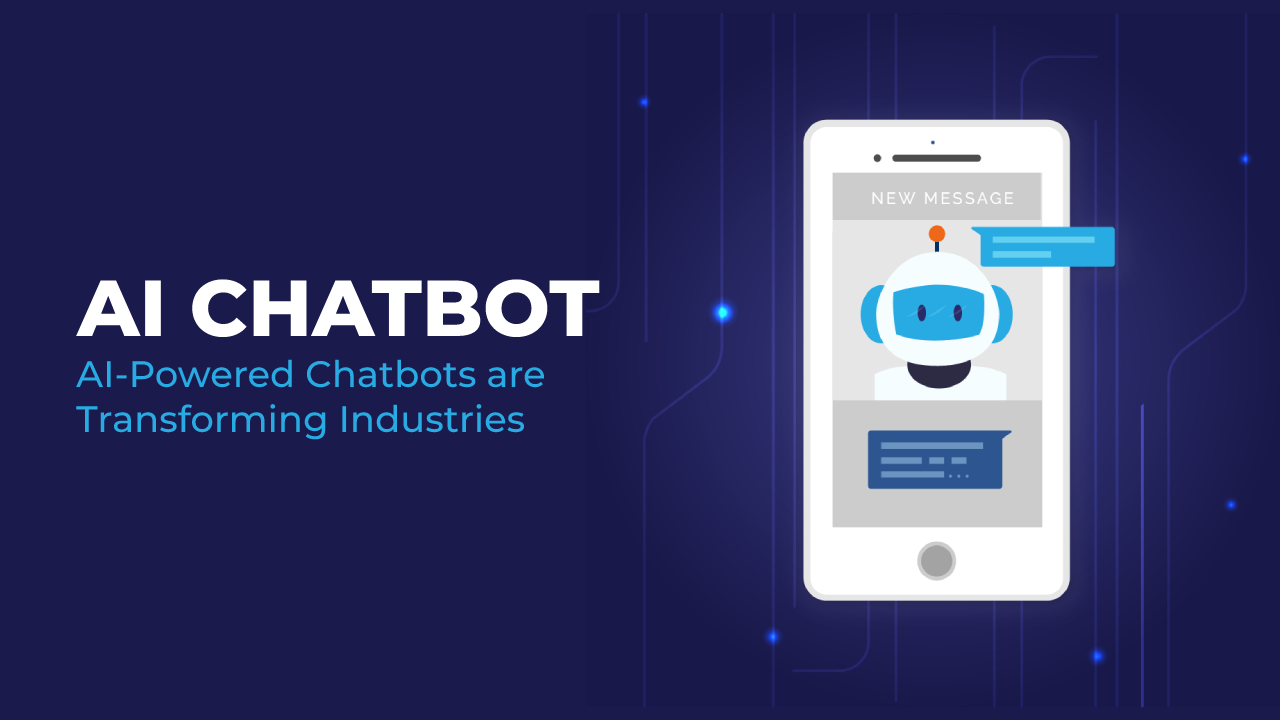In today’s fast-paced digital world, customers expect instant support, seamless interactions, and personalized service. Traditional customer support channels—like phone calls and emails—often fall short in meeting these expectations. This is where AI chatbot development comes into play, revolutionizing the way businesses handle customer support and significantly enhancing efficiency, customer satisfaction, and operational ROI.
What Is AI Chatbot Development?
AI chatbot development involves designing and implementing intelligent software agents capable of understanding, interpreting, and responding to human language. Unlike rule-based chatbots that rely solely on pre-defined responses, AI chatbots use machine learning, natural language processing (NLP), and contextual understanding to simulate human-like conversations.
Key capabilities of AI chatbots include:
Understanding and responding to natural language queries
Handling multiple queries simultaneously
Learning from past interactions to improve future responses
Providing personalized recommendations based on customer data
By integrating these chatbots into customer support channels—websites, mobile apps, social media, and messaging platforms—businesses can provide 24/7 support while reducing the burden on human agents.
Key Benefits of AI Chatbots in Customer Support
- 24/7 Availability
Customers expect instant support at any time. AI chatbots never sleep, providing round-the-clock assistance and ensuring that inquiries are addressed promptly, even outside business hours.
For example, e-commerce platforms can assist customers with order tracking, product inquiries, or payment issues at any hour, improving satisfaction and reducing frustration.
- Faster Response Times
AI chatbots process queries instantly, reducing wait times from minutes or hours to seconds. Quick responses prevent customer frustration and improve the overall experience.
According to studies, over 70% of customers expect responses within minutes, and AI chatbots can easily meet this expectation, giving businesses a competitive edge.
- Handling High Volumes Efficiently
During peak periods, customer support teams often face overwhelming demand. AI chatbots can handle thousands of queries simultaneously, ensuring that no customer is left waiting.
For instance, telecom companies often experience spikes during billing cycles. AI chatbots can manage repetitive queries, freeing human agents to focus on complex cases.
- Cost Efficiency
Incorporating AI chatbots reduces the reliance on a big support team. Businesses can automate repetitive tasks such as FAQs, password resets, and order status checks, leading to significant cost savings.
A well-designed AI chatbot can handle up to 80% of routine inquiries, drastically reducing operational costs.
- Personalization and Context Awareness
Modern AI chatbots can access customer profiles, past interactions, and purchase history to provide tailored responses. Personalized support builds trust and enhances customer loyalty.
For example, a chatbot for a banking app can greet a user by name, provide account-specific information, and even suggest relevant services based on previous behavior.
- Multi-Channel Support
AI chatbots can operate across multiple channels including websites, apps, social media, and messaging platforms. This omnichannel support ensures consistent service and allows customers to interact via their preferred channel.
Practical Applications of AI Chatbots in Customer Support
- E-commerce Support
AI chatbots assist customers with product inquiries, order tracking, returns, and payment issues. During high-volume sales events, chatbots ensure that every customer receives timely support, increasing conversions and customer satisfaction.
- Banking and Finance
Banks use AI chatbots for balance inquiries, transaction details, fraud alerts, and personalized financial advice. Chatbots reduce waiting times for routine tasks, allowing human agents to focus on complex queries.
- Healthcare
Healthcare chatbots can schedule appointments, provide reminders, answer FAQs about symptoms, and guide patients to the right resources. AI-driven support reduces administrative workload and improves patient engagement.
- Travel and Hospitality
Travel companies leverage AI chatbots to manage bookings, flight updates, cancellations, and local recommendations. Real-time updates and instant assistance improve traveler experiences while reducing operational strain.
- Telecom
Telecom companies integrate AI chatbots to troubleshoot network issues, explain billing queries, and schedule technician visits. Customers benefit from quick resolutions without long wait times.
How AI Chatbots Enhance Human Support
While AI chatbots handle routine and repetitive tasks efficiently, they also complement human agents:
Seamless Handover: Complex queries are escalated to human agents with full conversation context, reducing repetition and enhancing resolution speed.
Agent Assistance: Chatbots can suggest responses, pull relevant information, and provide knowledge base recommendations to agents in real-time.
Training Insights: Data from AI interactions help train human agents and improve response quality.
By combining AI and human support, businesses can provide faster, smarter, and more satisfying customer experiences.
Key Metrics to Measure Impact
To evaluate the effectiveness of AI chatbots in customer support, track the following metrics:
First Response Time (FRT): Time taken to respond to customer queries
Resolution Time: Average time to resolve an issue
Containment Rate: Percentage of queries handled entirely by chatbots without human intervention
Customer Satisfaction (CSAT): Ratings given by customers after interaction
Cost per Interaction: Reduction in support costs compared to human-only support
Conversion Rate: Increase in sales or completed tasks due to AI chatbot assistance
Challenges and Best Practices
While AI chatbots offer significant benefits, successful implementation requires careful planning:
Challenges
Misunderstanding Queries: Chatbots may misinterpret complex or ambiguous questions.
Over-Reliance on Automation: Excessive automation can frustrate customers who need human support.
Data Privacy Concerns: Chatbots handle sensitive customer data that must be secured.
Best Practices
Combine AI with human agents for complex queries.
Continuously train chatbots on real customer interactions.
Implement multi-channel support for consistency.
Use analytics to refine performance and personalize responses.
Ensure compliance with data privacy regulations.
The Future of AI Chatbot Development in Customer Support
AI chatbots will continue to evolve, becoming more intelligent, context-aware, and capable of proactive engagement. Future trends include:
Self-Learning AI: Bots improve automatically through interactions and feedback.
Voice-Enabled Chatbots: Integrating voice recognition for hands-free support.
Hyper-Personalization: Using AI to anticipate customer needs and suggest solutions proactively.
Integration with IoT and AR/VR: Offering interactive, immersive support experiences.
These advancements will further enhance efficiency, customer satisfaction, and business ROI.
Conclusion
AI chatbot development is transforming customer support by providing 24/7 availability, instant responses, cost savings, and personalized experiences. Businesses that implement AI-driven chatbots can improve operational efficiency, customer satisfaction, and revenue, all while reducing pressure on human agents.
By following best practices and integrating AI chatbots thoughtfully across channels, organizations can not only meet but exceed customer expectations, establishing a competitive edge in today’s digital landscape.






